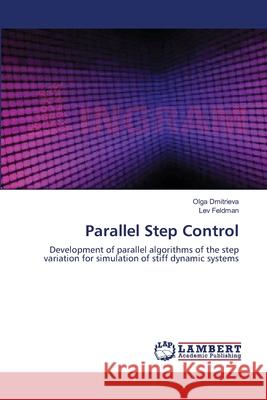Parallel Step Control » książka
Parallel Step Control
ISBN-13: 9783659384257 / Angielski / Miękka / 2013 / 72 str.
The work is devoted to the construction of efficient parallel algorithms of the integration step control in for simulation of dynamic objects. To select the optimum step size the paper proposes several parallel algorithms that are based on well-known, specially restructured methods of solving systems of ordinary differential equations. For these purposes, the parallel nested methods, explicit and implicit extrapolation schemes of variable order are used. As a criterion for the selection of the numerical scheme the inequalities which control accuracy and stability are used. When solving stiff problems, this allows at each step to select the optimum in terms of computational cost numerical scheme. Also the new difference block methods with the possibility of adapting the step, addressed at parallel implementation, are proposed. The basic idea, on which the design of block methods was based, is to obtain simultaneous approximations of the exact solution at points forming a block. On the basis of the proposed step size control algorithms test problems are implemented, the numerical solution of which provides the required accuracy with the maximum possible integration step.
The work is devoted to the construction of efficient parallel algorithms of the integration step control in for simulation of dynamic objects. To select the optimum step size the paper proposes several parallel algorithms that are based on well-known, specially restructured methods of solving systems of ordinary differential equations. For these purposes, the parallel nested methods, explicit and implicit extrapolation schemes of variable order are used. As a criterion for the selection of the numerical scheme the inequalities which control accuracy and stability are used. When solving stiff problems, this allows at each step to select the optimum in terms of computational cost numerical scheme. Also the new difference block methods with the possibility of adapting the step, addressed at parallel implementation, are proposed. The basic idea, on which the design of block methods was based, is to obtain simultaneous approximations of the exact solution at points forming a block. On the basis of the proposed step size control algorithms test problems are implemented, the numerical solution of which provides the required accuracy with the maximum possible integration step.











